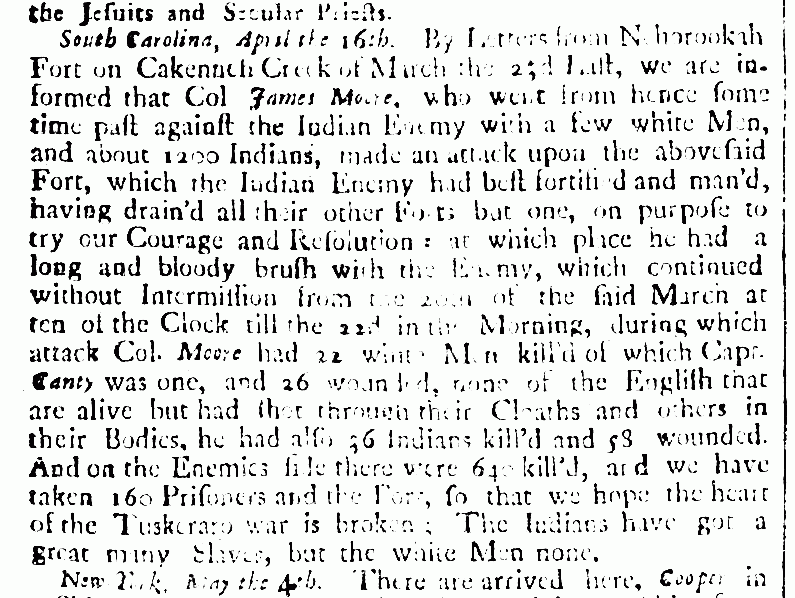The Boston News-Letter reports on the Tuscarora War, 1713
The Tuscarora War was news throughout the English colonies. This April 1713 issue of the Boston News-Letter reported on Colonel Moore's attack on the Tuscarora.
Article Transcription:
South Carolina, April the 16th. By Letters from Nehorookah Fort on Cakenneh Creek of March the 23rd Last, we are informed that Col. James Moore, who went form hence some time past against the Indian Enemy with a few white Men, and about 1200 Indians, made an attack upon the abovesaid Fort, which the Indian Enemy had left fortified and man’d, having drain’d all their other Forts but one, on purpose to try our Courage and Resolution: at which place he had a long and bloody brush with the Enemy, which continued without Intermission from the 20th of the said March at ten of the Clock till the 22nd in the Morning, during which attack Col. Moore had 22 white Men kill’d of which Capt. Canty was one, and 26 wounded, none of the English that are alive but had shot through their Cloaths and others in their Bodies, he had also 36 Indians kill’d and 58 wounded. And on the Enemies side there were 640 kill’d, and we have taken 160 Prisoners and the Fort, so that we hope the heart of the Tuskeraro was is broken; The Indians have got a great many Slaves, but the white Men none.

Public Domain
Public Domain is a copyright term that is often used when talking about copyright for creative works. Under U.S. copyright law, individual items that are in the public domain are items that are no longer protected by copyright law. This means that you do not need to request permission to re-use, re-publish or even change a copy of the item. Items enter the public domain under U.S. copyright law for a number of reasons: the original copyright may have expired; the item was created by the U.S. Federal Government or other governmental entity that views the things it creates as in the public domain; the work was never protected by copyright for some other reason related to how it was produced (for example, it was a speech that wasn't written down or recorded); or the work doesn't have enough originality to make it eligible for copyright protection.